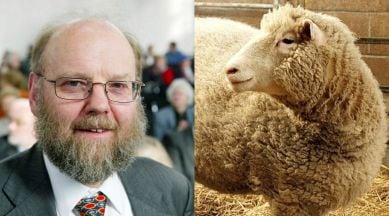Ian Wilmut, scientist behind Dolly the sheep, dies at 79
Ian Wilmut, the scientist behind Dolly the sheep, died on Monday years after being diagnosed with Parkinson's disease.

Ian Wilmut, the British embryologist who led the team that created the first mammal cloned from an adult cell, popularly known as Dolly the Sheep, died at the age of 79. Wilmut died on Monday after being diagnosed with Parkinson’s disease in 2018, according to the University of Edinburgh.
Wilmut, Keith Campbell and other members of their team is credited for what is arguably one of the greatest scientific breakthroughs in the 20th century—the creation of the cloned sheep Dolly from an adult cell in 1996. Campbell passed away in 2012. Dolly’s cloning was the first time that scientists were able to make a mature adult cell behave like a cell from a newly fertilised embryo, according to AP. This meant that they were able to create an animal genetically identical to the “donor.”
How Ian Wilmut and team cloned a sheep
Dolly’s birth nearly 30 years ago was an epic scientific achievement, but it also sparked debate about the ethics of this research. A year after Dolly’s birth, then US President Bill Clinton announced a ban on human cloning experiments, stopping short of banning all cloning research. Dolly’s life came to an end not long after. About six years after birth, the sheep developed an incurable lung tumour and it was euthanised by scientists.
Ian Wilmut’s research on stem cells
After the terrific success of the Dolly experiment, Wilmut focused his efforts on using cloning technology to make stem cells that could be used in regenerative medicine. His work was critical to research into treating genetic and degenerative diseases by helping the human body repair damaged tissue.
While his research did trigger anxieties about the ethics of cloning technology, many of those fears haven’t really panned out. Wilmut is a hero of the scientific community and his research laid the groundwork for new medical technology that could save lives.